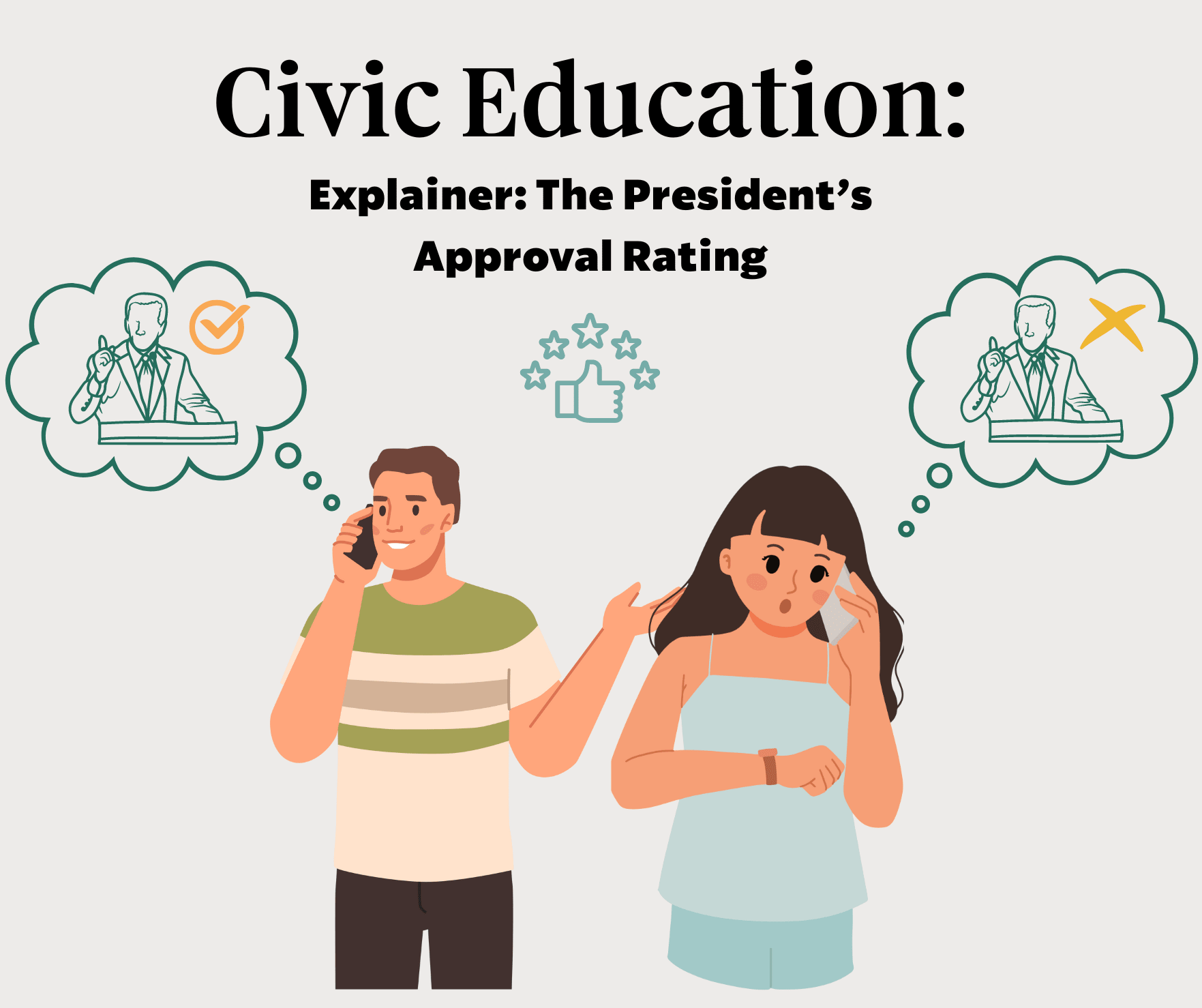
Explainer: The President’s Approval Rating
Do presidential approval ratings influence you?
What is the president’s approval rating?
- The president’s approval rating is a measure of public sentiment towards a president’s job performance at a particular point in time.
- The first presidential approval ratings were conducted by research company Gallup in 1937.
- Presidential approval ratings can rise and fall over time. For example, George W. Bush received a 90% approval rating after the Sept. 11 attacks. However, when he left office, he had a 33 percent approval rating.
How are approval ratings calculated?
- Approval ratings are typically calculated through public opinion polls run by polling organizations and media companies, such as Gallup, Pew Research Center and CNN.
- Gallup conducts presidential approval ratings by selecting a random sample of U.S. adults to participate in a telephone survey. The survey asks questions about their approval or disapproval of the president's job performance. Gallup then releases the results as a percentage of those who approve or disapprove of the president.
What do presidential approval ratings do?
Presidential approval ratings can impact the president's political agenda and broader political landscape by:
- Influencing policy decisions: High approval ratings can empower a president to pursue a certain agenda, while low approval ratings can cause them to change course or prioritize popular issues. High approval ratings can also help a president negotiate in Congress, while low ratings can make it harder for them to reach agreement.
- Shaping public opinion: Presidential approval ratings shape public opinion of the president, their policies, and the current political landscape.
- Indicating re-election outcomes: High approval ratings are often seen as a reliable predictor of a president winning re-election.
Do approval ratings accurately reflect success?
- While approval ratings reflect public sentiment on a president's performance, they aren't the only measure of success or failure.
- There are several reasons why this is the case:
- Approval ratings are subjective: Approval ratings are based on individual opinions and can be influenced by factors such as ideology, personal experience, and media coverage.
- Approval ratings are affected by external factors: External factors that are beyond the president’s control, like the economy, international events, and natural disasters can influence presidential approval ratings.
- Approval ratings are limited: Approval ratings assess the president's overall job performance, but may not capture specific policy areas or actions.
Do presidential approval ratings affect your opinion of the current president?